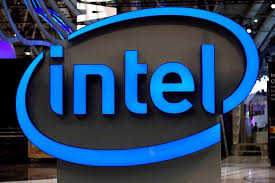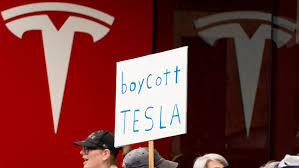Ford F-150 Owners Beware: New Tariffs Could Cost You Big Time!
The U.S. auto market is gearing up for a big year in 2025. Sales are expected to rise, but new tariffs and changing consumer preferences could make things unpredictable. Whether you’re a car buyer, investor, or just an auto enthusiast, here’s a look at what to expect in the coming months.
Car Sales Are Bouncing Back—but Not Without Challenges
The U.S. car market is rebounding after a few rocky years. Total car sales increased by 2.2% to 15.9 million vehicles in 2024. Strong demand and higher inventory levels are to blame for it.
Some of the largest improvements were made by Ford and General Motors. SUVs and trucks drove GM’s 21% increase in fourth-quarter sales, while Ford’s F-Series pickups contributed to a 9% increase.
But not everything is smooth sailing. Rising interest rates and inflation have made car loans more expensive, leading some buyers to think twice before upgrading their rides. To keep sales moving, automakers are rolling out better financing deals and special incentives.

The EV Revolution Keeps Rolling
Electric vehicles (EVs) are becoming more popular than ever. Analysts predict that by the end of 2025, EVs will make up about 20% of all new car sales in the U.S.—a big jump from just 8% in 2023.
Tesla is still the king of the EV market, but competition is heating up. Ford’s Mustang Mach-E and GM’s Chevrolet Equinox EV are gaining traction, and companies like Rivian and Lucid Motors are making waves with their innovative designs. Meanwhile, Toyota and Honda are expanding their hybrid lineups for drivers who want better fuel efficiency without going fully electric.
That said, the EV boom isn’t without its hurdles. Charging station availability is still a concern, and some buyers worry about long charging times. The U.S. government is pushing for more EV-friendly policies and offering tax incentives to encourage adoption, but building a nationwide charging infrastructure will take time.
Tariff Troubles: How Trade Policies Could Shake Up the Industry
One of the biggest wild cards for the auto market in 2025 is the impact of new tariffs. The Biden administration recently slapped higher tariffs on Chinese EVs and batteries to protect U.S. manufacturers.
This could be a double-edged sword. On one hand, it might make foreign EVs more expensive, pushing more buyers toward American-made cars. On the other hand, automakers that rely on imported parts—like Tesla and GM—could see their production costs go up, which might lead to higher sticker prices for consumers.
Car companies are keeping a close eye on trade negotiations, as any major shifts in policy could affect pricing strategies and manufacturing plans.
Top Car Stocks to Watch in 2025
If you’re thinking about investing in the auto industry, here are some of the biggest names to keep on your radar:
- Tesla (TSLA) – Still the biggest player in the EV game, with new models and battery tech that could drive future growth.
- General Motors (GM) – Making bold moves in the EV space with its Ultium battery platform and expanding electric lineup.
- Ford (F) – Betting big on EVs and trucks, including its electric F-150 Lightning, which has been a hit with consumers.
- Rivian (RIVN) & Lucid (LCID) – Smaller players, but making a name for themselves with high-performance electric vehicles.
- Toyota (TM) – Taking a hybrid-first approach, with plans to ramp up its EV production in the coming years.
What’s Next for the Auto Industry?
The U.S. car industry will face both possibilities and difficulties as 2025 progresses. Although it is anticipated that sales will continue to increase, supply chain problems, trade conflicts, and high loan rates may cause some unexpected problems. Although EV adoption is increasing quickly, infrastructure must keep up to keep up with demand.
This presents both positive and negative news for customers. Although there are more alternatives available than ever before, purchasing decisions will be heavily influenced by costs and financing terms. It’s a high-stakes game for investors, but those who support the right businesses stand to gain greatly.






